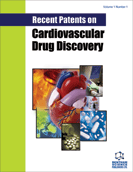Abstract
Heparin, low molecular weight heparin (LMWH) and warfarin are well-established anticoagulants still in widespread use despite their well known drawbacks. Heparin requires continuous monitoring, has serious side-effects such as haemorrhage, thrombosis and osteoporosis, and lacks an oral route of administration. LMWH is a safer, more convenient anticoagulant to use but it cannot be given orally, does not have an antidote and may be difficult to administer in patients with renal failure. Warfarin has a narrow therapeutic window, interacts with other drugs and foods and requires monitoring like heparin. The limitations of all three of these established anticoagulants have prompted the search for better more convenient agents. The major examples of these newer anticoagulants are the direct and indirect factor Xa inhibitors and the direct thrombin inhibitors. These new agents tend to have more predictable pharmacokinetic properties, superior efficacy and safety and some can be administered orally. In this review, we summarise the advantages and disadvantages of three established anticoagulants (heparin, LMWH and warfarin) and the most promising new anticoagulants (fondaparinux, idraparinux, rivaroxaban, apixaban, dabigatran and ximelagatran) by discussing their pharmacodynamics and pharmacokinetics. We also discuss recent patents in the field of anticoagulation, which aim to improve the safety and effectiveness of antithrombotic agents currently in use or offer alternative ways for anticoagulation.
Keywords: Anticoagulant, pharmacology, heparin, low molecular weight heparin, warfarin, fondaparinux, idraparinux, rivaroxaban, apixaban, ximelagatran, thromboembolism
 18
18


